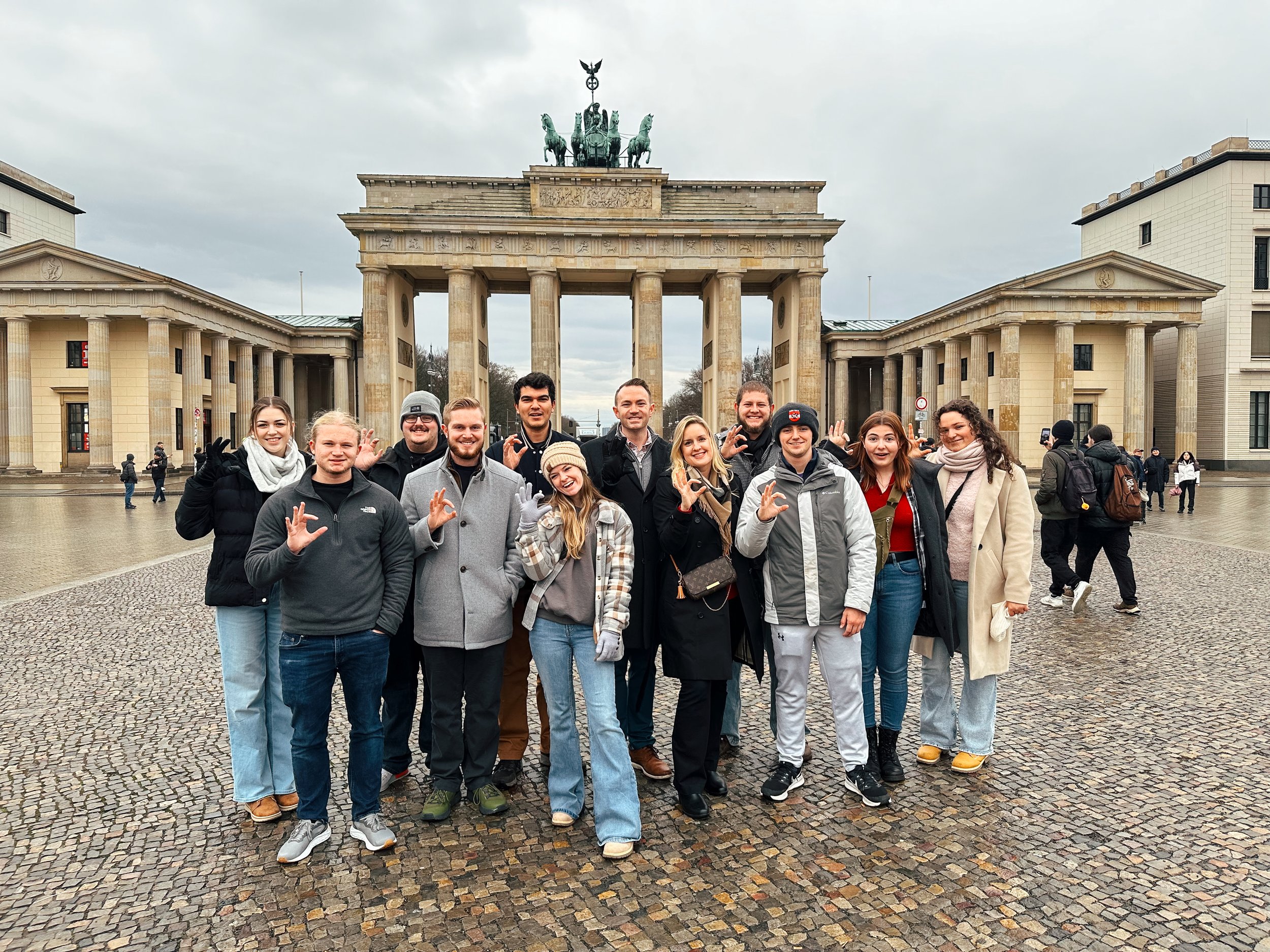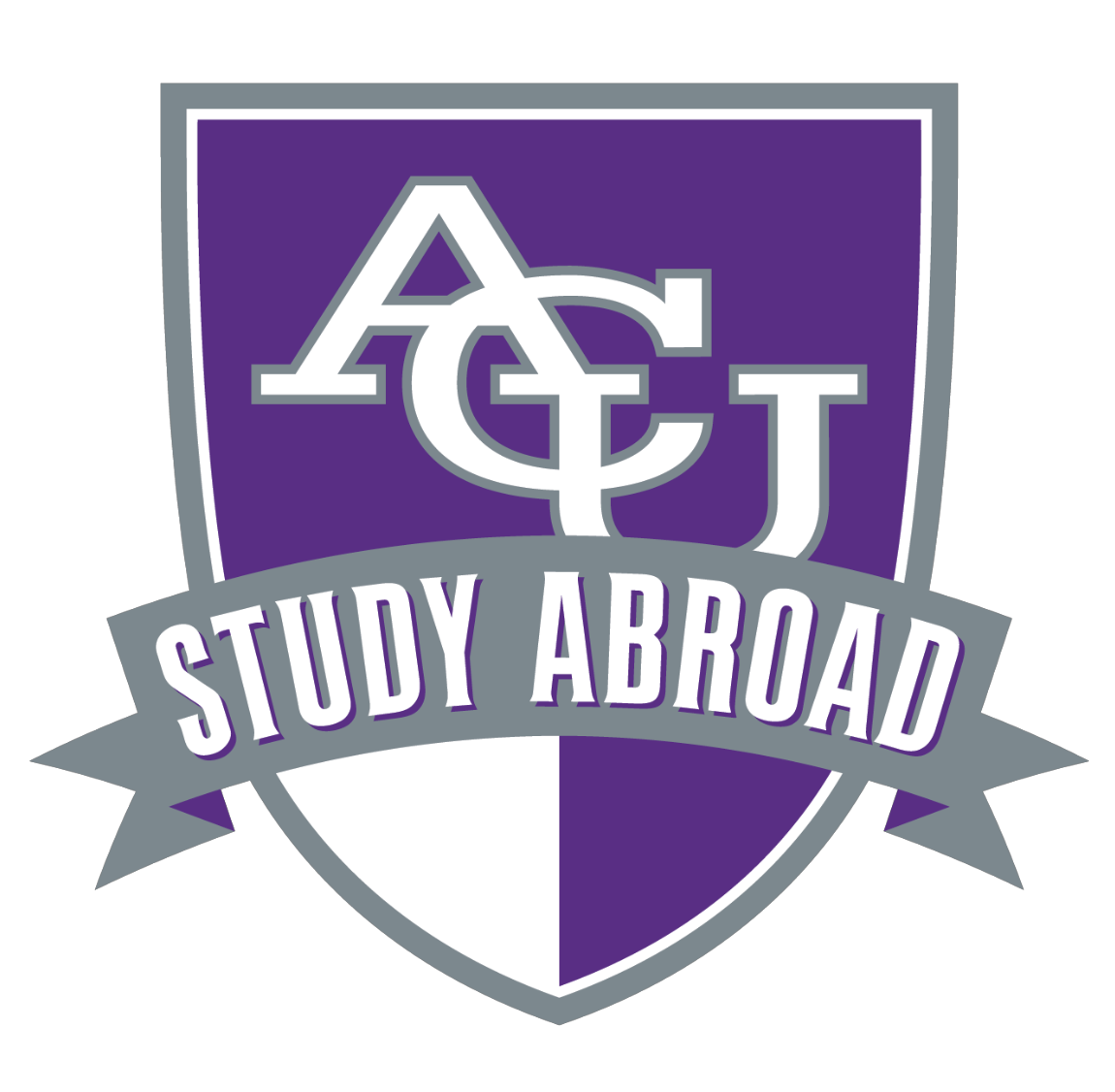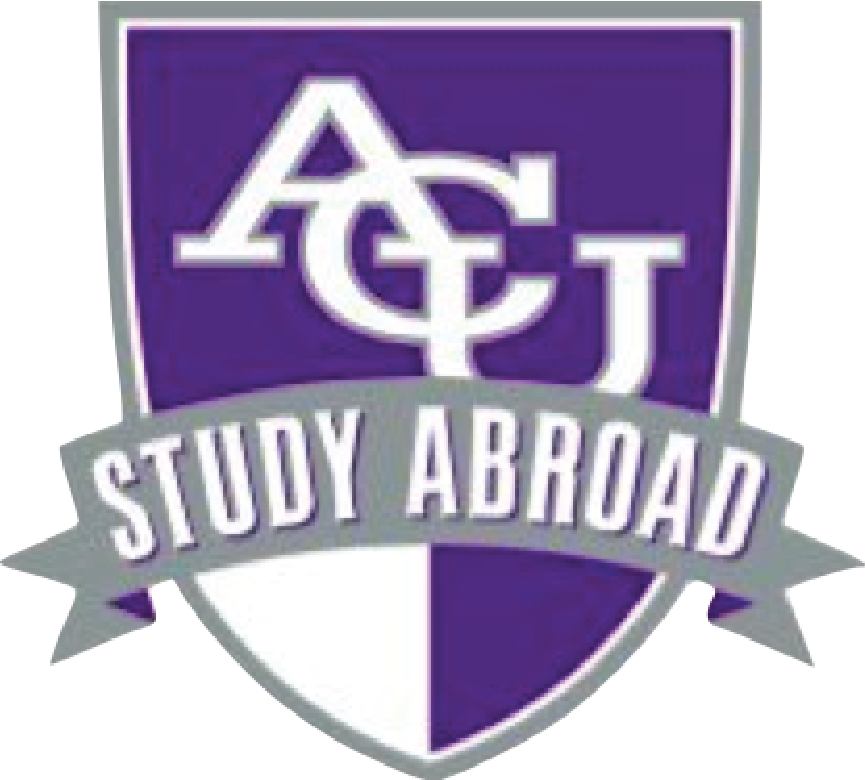
FIR ROLE
The FIR Role
The Faculty-in-Residence (FIR) role is one of the most enriching and impactful positions within ACU’s Study Abroad programs. It offers a rare opportunity to teach in a dynamic international context, build deeper relationships with students, and experience the life of the host city in a more immersive and sustained way. Faculty who serve in this role often describe it as a deeply formative professional and personal experience—one that strengthens their teaching, broadens their global perspective, and renews their sense of purpose in Christian higher education.
At the same time, the FIR role is defined by collaborative leadership and a willingness to serve. From the moment you arrive at your site, we ask that you be ready to work alongside our local team, support the rhythms of residential life, and offer guidance to students as they navigate a cross-cultural learning environment. FIRs are not expected to function as resident directors, tour managers, or logistical coordinators—but they do play a critical role in fostering community, maintaining academic and spiritual tone, and responding with care and discernment when student challenges arise.
Program Expectations
We expect the Faculty-in-Residence to provide support to our local teams and collaborative leadership with our local program directors. From the moment you touch down at your site, we would like you to be prepared to assist our local team and lead students.
1. Arrive early: Faculty-in-Residence are transported to their program site approximately one week prior to student arrival for semester programs, or a few days early for summer programs. This time is set aside intentionally to help you and your family adjust to the time zone, become oriented to the local community, and connect with our on-site staff and faculty team. You’ll also be included in preparations for the student orientation that follows.
This early arrival period is crucial for establishing a shared understanding of the program’s goals, logistics, and your unique role within it. It’s a full and important week—so we ask that you arrive rested, prepared, and ready to engage from the start.
2. Welcome the RAs: Student Resident Advisors (RAs) will arrive a few days early to allow both the program administration and the Faculty-in-Residence to build strong working relationships and establish clear expectations prior to the arrival of the full student cohort.
As part of this early orientation period, we ask that you host a welcome dinner for the RAs in your apartment. This informal gathering is an opportunity to connect personally, set the tone for your leadership, and share your vision for community and spiritual life during the program. It’s a small but meaningful moment that helps lay the foundation for a healthy and collaborative team dynamic.
3. Lead the Opening Welcome: On the evening of student arrival, we ask you to lead an 8–10-minute welcome that sets the tone and direction for the term ahead. This is your opportunity to offer an encouraging word, begin shaping the group's shared expectations, and introduce yourself in a way that is authentic and inspiring.
Each Faculty-in-Residence brings a different voice to this moment, so please feel free to draw from your own strengths. Many FIRs choose to share a personal story, reflect on their hopes for the student experience, or offer a vision for how the group might grow together during the semester. What are you passionate about? What do you hope students will walk away with? What kind of community do you want to help build?
This brief welcome is a meaningful first step in establishing your presence, building rapport, and beginning the year with a clear and hopeful sense of purpose.
4. Attend House Leadership Meetings: Each week, the Program Director will facilitate a House Leadership Meeting that includes the Faculty-in-Residence (and their partner, if applicable) along with the RA(s). These meetings serve as a vital touchpoint for assessing the previous week, planning for the days ahead, and addressing any emerging challenges within the student community.
Beyond logistics, these meetings are also an opportunity for personal and communal growth—a space to reflect on the meaning and practice of Christian discipleship, service, and leadership in a cross-cultural setting. We encourage FIRs to participate actively by offering insights into student well-being, sharing updates on House Church, and contributing ideas or support to help foster a healthy, thriving community abroad.
5. Provide information to the ACU IP Disciplinary Committee (IPDC): In rare cases when a student violates community standards in a serious way, the Executive Director of International Education may convene the International Programs Disciplinary Committee (IPDC). This committee typically includes the Executive Director and the Dean of Student Life, and is responsible for reviewing the situation and determining appropriate outcomes according to the policies within the ACU International Programs Handbook.
In such cases, the Faculty-in-Residence may be asked to provide relevant information or personal insight to assist the committee’s deliberations. While the FIR does not serve as a disciplinary authority, their on-the-ground perspective is often essential in helping the committee understand the full context of the situation.
Student Mentorship and Spiritual Formation
We expect the Faculty-in-Residence to provide spiritual leadership and mentorship to students throughout the term. Whether through your role in weekly House Church gatherings or through informal, everyday conversations—around meals, during walks, or in quiet moments—your presence can be a powerful part of the spiritual formation that takes place abroad.
Many of our students are at a formative stage of life and are navigating complex questions around faith, vocation, identity, relationships, and pressure to succeed. As a trusted teacher and, in many ways, a “house parent,” your gentle guidance, attentive listening, and faithful witness can offer students both grounding and grace as they grow.
Your leadership in this area is not about having all the answers—it’s about being present, thoughtful, and open to walking alongside students in the often sacred messiness of their development.
1. Weekly House Church. Each week, the Faculty-in-Residence leads House Church, a student-centered gathering that typically takes place on Monday evenings at 8:30 p.m. This time serves as a meaningful re-entry point after weekend travel—offering students space to share reflections, reconnect with one another, and participate in a vibrant, authentic spiritual community.
While staff may attend occasionally, House Church is led solely by the FIR and provides a valuable opportunity to shape the spiritual rhythm of the semester. Please refer to the FIR Spiritual Life page for resources, ideas, and examples to support you in planning and leading this weekly gathering.
2. House Meeting. Once per term, the FIR is invited to offer a devotional message during a weekly House Meeting. This is a chance to speak directly to the full student community and to reflect on themes that lie at the intersection of your personal passions, students' lived experiences, and the Christian story.
These devotionals are most impactful when the FIR shares authentically—drawing from personal experience, academic insight, or spiritual wisdom. We encourage you to "play to your strengths" and speak in a way that is both meaningful and accessible to students.
3. "Table Time." Over the course of a semester, FIRs will naturally spend many hours with students around the table—during meals, coffee breaks, or casual conversations. Far from incidental, these moments often become some of the most formative and meaningful experiences of the program.
By listening well, sharing stories, and gently integrating the Christian message into everyday reflection, FIRs help create a living-learning environment that fosters spiritual growth, relational depth, and holistic learning.
4. Thursday Dinner. Once per week, FIRs typically host a small-group dinner (4–6 students) in their apartment. These informal gatherings are a wonderful opportunity to get to know students more personally and to foster deeper connection in a relaxed, welcoming space. Whether you're cooking a simple meal or ordering takeout, these dinners are consistently remembered as a highlight of the study abroad experience—for both students and faculty alike.
Academic Expectations
We expect the Faculty-in-Residence to be involved in the academic life of the program.
1. Campus Connections. While abroad, many students feel a sense of distance from the main campus and the resources they typically rely on—particularly when it comes to academic planning. This can create a degree of uncertainty, especially during course registration periods for upcoming semesters.
The Faculty-in-Residence plays a key role in bridging this gap. During registration windows, we ask that you hold special office hours to support students as they consider future course selections, discuss their academic goals, and interpret university policies. While you're not expected to serve as an academic advisor, your presence and guidance can help students process their decisions and connect with the appropriate campus offices or advisors for more specific guidance.
By offering a steady voice and encouraging thoughtful planning, you help students feel more grounded, confident, and connected to their academic journey—even while they are far from campus.
2. Vocational discernment. As students begin to think seriously about life after graduation, they often wrestle with questions about internships, career direction, graduate school, and calling. These conversations are often deeply personal and can be difficult to navigate without guidance.
The Faculty-in-Residence can play an important role here by intentionally setting aside time to meet with students who are discerning their next steps. While you're not expected to provide career counseling, your own experience—combined with your perspective as a trusted mentor—can be a steady and encouraging voice during a formative moment in their lives.
3. Faculty meetings. Throughout the semester, faculty meetings will be held to provide updates on program matters, review academic progress, and coordinate logistics. The FIR is expected to attend these meetings to stay informed and actively contribute to the academic life of the program.
These meetings are also a valuable opportunity to build relationships with our permanent local faculty, who play a critical role in the program’s success. A dinner is typically held prior to each meeting, and FIR partners are warmly invited to attend, offering a more relaxed setting for connection and community with our local faculty team.
Administrative & Excursion Expectations
We expect the Faculty-in-Residence to be involved in administrative support.
1. Excursion assistance. Both summer and semester programs include multiple program excursions, and semester programs feature a week-long Educational Field Trip (EFT) designed to deepen students’ academic and cultural engagement.
While all logistics are carefully planned in advance by our local staff, student leadership during these trips is essential. We ask the Faculty-in-Residence to fully embrace their role as a leader—not a participant—on these excursions, supporting the Program Director and local staff in managing group dynamics and ensuring smooth execution.
This may involve a wide range of practical tasks: making announcements, helping track down missing students, encouraging respectful listening during tours, counting students as they board a bus, or staying behind at the hotel to care for an ill student. These small but critical acts of leadership help shape the overall tone and success of the trip.
The best way to contribute meaningfully is to ask local staff how you can be most helpful. Your active support during excursions is a vital part of creating a safe, attentive, and enriching experience for our students.
2. Summer Excursions: Summer excursions are typically closely tied to course content and are designed as focused, 24- to 48-hour academic experiences within the host country. These excursions can be fast-paced and logistically demanding, requiring the Program Director and Faculty-in-Residence to be fully present—both academically and pastorally—for students throughout the duration of the trip.
To support this level of engagement, we place important limitations on family participation during summer excursions. FIRs who are accompanied by spouses and dependent children will not be permitted to bring their family members along on these trips. Dependent children should remain in Leipzig under the care of the FIR spouse, and spouses will not participate in local summer excursions.
This policy is designed to ensure that FIRs can focus fully on their teaching responsibilities and student needs, and to uphold the academic integrity and safety of the excursion experience for all participants.

